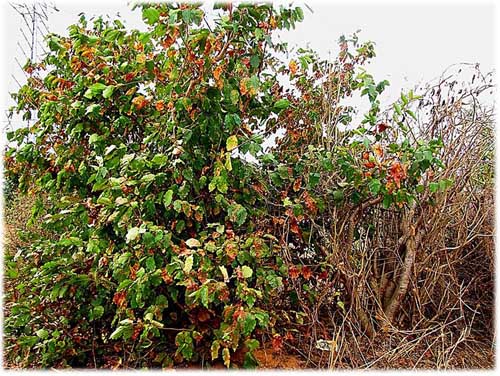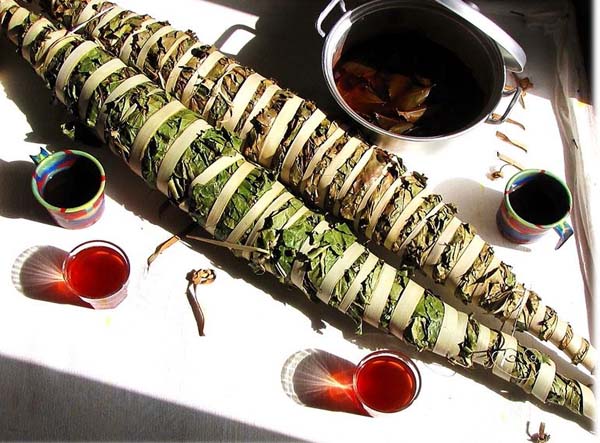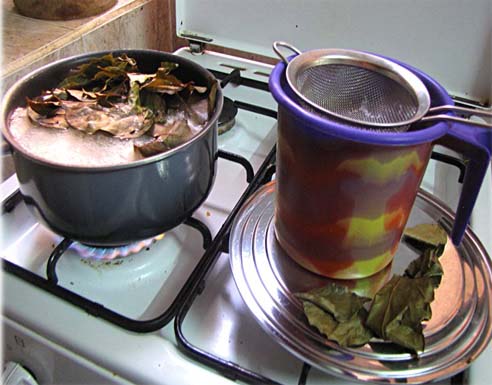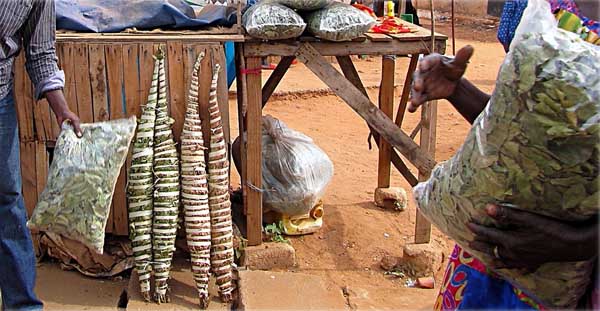If you visit Senegal or certain other West African countries, you are certain to see people selling baskets full of kenkeliba. These leaves come from the combretum micranthum shrub and are consumed as a sweet tea. Not only does the tea actually taste pretty nice, but Kenkeliba has a long list of health benefits which will make you want to drink more of it.
What Is Kenkeliba?

Kenkeliba is a shrub which grows in parts of West Africa. The wood is incredibly strong so is often used to make furniture. As for health benefits, it is usually the Kenkilba leaves which are used to make tea. However, the bark and roots can also be used to make tea.
Wester African Muslims often drink Kenkeliba tea when breaking fast during Ramadan. It’s believed that the tea will balance their digestion.
Other Names:
- Combretum micranthum (Latin)
- Kinkeliba
- Sekhew in Wolof
- ŋɔlɔbɛ in Babara
Health Benefits of Kenkiliba

Even though it isn’t as well-known as many other superfoods, Kenkilba has numerous health benefits. The health benefits are related to the potent flavonoid antioxidants found in the plant. These are the main benefits of Kenkiliba tea. (1)
1. Diabetes Prevention and Treatment
While not a traditional use for Kenkeliba (diabetes is fairly new though), studies have found that Kenkeliba tea has benefits in both preventing and treating diabetes.
The flavonoids in Kenkeliba:
- Increase glucose tolerance
- Lower glucose production and levels, even without weight loss
- Decrease the PEPCK enzyme, which could help treat insulin-resistant diabetes
Impressively, it only takes 7 weeks for these benefits to show. (2, 3, 4, 5)
2. Anti-Inflammatory
The antioxidants in Kenkeliba tea help fight inflammation, which in turn can provide a range of benefits for conditions like eczema, psoriasis, and inflamed gut.
Unfortunately, the full anti-inflammatory benefits of Kenkeliba havne’t been well studied but one study did find that taking Kenkeliba reduced edema, vascular permeability, and blocked granuloma formulation. (6)
3. Fighting Infections Viral
Kenkeliba extracts have antiviral and antimicrobial properties. It is commonly used for treating malaria and there is some scientific evidence to back up its effectiveness (though I wouldn’t rely just on Kenkeliba for malaria – see a doctor!).
One study found that Kenkeliba could be used to treat herpes viruses. And I’ve seen Kenkeliba being listed as a cure for diaper rash because of its antibacterial activity. (7, 8, 9)
4. Weight Loss
Traditionally, Kenkeliba tea is used to help weight loss. It’s not certain where the weight loss benefits come from but it could be because Kenkeliba helps stabilize glucose levels (so you don’t feel as hungry) and detoxes the body.
5. Diuretic
A well-known diuretic locally, Kenkeliba can help reduce blood pressure, increase urine production and flush excess water from the body.
6. Gallstones and Bile Issues
Kenkeliba will help extract bile from the gallbladder, which can prevent gallstones and speed up passing gallstones. (10)
7. Digestion and GI Issues
Traditionally, Kenkeliba is used to help with a variety of GI issues such as diarrhea, vomiting, food poisoning, and other stomach bugs. Studies attribute these benefits to the anti-microbial and anti-inflammatory properties of the plant. (11)
8. Other Benefits
In local medicine, Kenkeliba has been used for numerous other health benefits. I couldn’t find any scientific studies into these benefits though.
- Circulation
- Insomnia treatment
- Infertility
- Wound healing
- Colic
- Clearer skin
How to Use Kenkeliba?

To make kenkeliba tea:
- Put a handful of Kenkeliba leaves into 8 cups of water
- Bring the water to a boil
- Remove the water from the heat.
- Let the leaves steep for 15 minutes (or longer – up to an hour — for a more potent medicinal tea)
- Add milk and honey, if desired
Where to Buy Kenkeliba Tea?
Some African specialty food stores have kenkeliba tea. You can also find it sold on Amazon from the brands Saafara Teas.



I drink kenkeliba tea, but the seed, does the seed work like leave. You insight on Kenkeliba is amazing. Let me know about the seed also. Thank you.
It’s likely that the seeds also provide some health benefits (most seeds are powerhouses when it comes to nutrition). But the research focuses on the leaves, so I can’t say for sure that the seeds would have benefits and which ones. 🙂